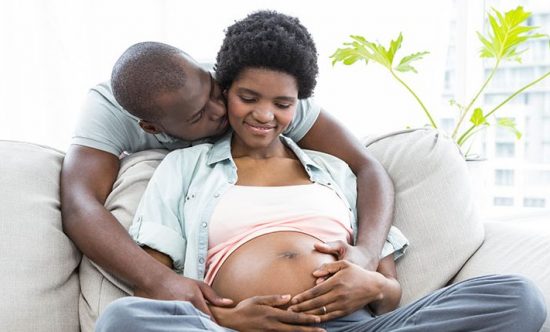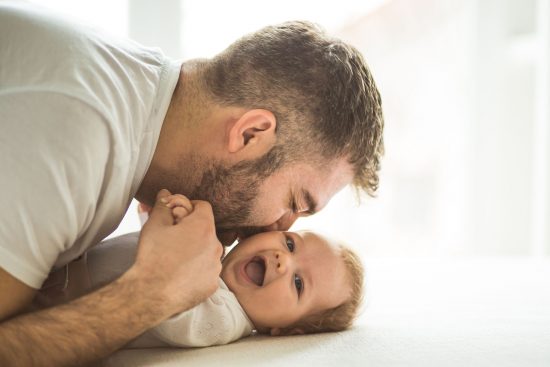NCT dad John* tells us about his wife’s bipolar depression, which was triggered by the birth of their daughter, and their journey towards diagnosing and treating it

My wife seemed to be getting more and more distant.
She started to feel very anxious about what she needed to do to manage our daughter’s routine.
We didn’t have much help from family either and, being our first baby, I didn’t know if this was normal.
But she didn’t seem happy or comfortable compared to other parents we’d met through our local NCT branch, so we started to wonder what the issue was.
It was like she was a shell of a person and not the same woman anymore
She then began to have feelings of being worthless and acted obsessively. She would spend hours cleaning baby things and writing lists of what needed to happen each day.
She couldn’t sleep, she was losing weight dramatically and she started saying that our daughter would be better off without her.
I tried to reason with her and told her she was doing well and that our baby needed her mother… but it didn’t seem to go in.

My wife was diagnosed as having postnatal depression (PND) by one doctor.
We decided to try antidepressants, but unfortunately this caused things to escalate badly, as she was wrongly diagnosed and they were making the symptoms worse.
And we even saw another doctor who, unbelievably, told her to pull herself together and get on with it.
By this stage I was starting to really worry and I was scared about what I might find when I got home from work.

That’s when I heard an advert on the radio for a charity called Cocoon Family Support that focuses specifically on PND.
They put us in touch with a specialist who diagnosed type 2 bipolar, which was triggered by the stress of having a newborn and compounded by lack of sleep.
After giving my wife the correct medication to manage her bipolar she started to get better again.
It’s the most scared and anxious I have ever felt
It was awful. I had heart palpitations and mild panic symptoms, which I had never experienced before.
Not being able to get through to my wife made me angry.
And I was worried she would do something terrible that would impact our child for ever.
Not really – I think more specialist help is needed. When I spoke to people about PND it didn’t seem quite the same as what we were experiencing, so we couldn’t fully relate.

PND wasn’t the full story for us, but at that time we didn’t know about the bipolar.
I tried to talk to family but many of them didn’t understand. It was only when I spoke to the charity and got in touch with the specialist that I felt like anything was helping.
I coped by being proactive and trying to find ways of helping, while trying to balance work at the same time.

The second time around was very different, thankfully.
My wife was in great spirits when pregnant and had lots of advice and extra support.
In discussion with her doctors, she decided not to go back on medication as she wanted to breastfeed.
As she’d finally been diagnosed correctly we could keep an eye on her and look for any signs of problems and go from there.
My wife was closely monitored and we planned extra support
I had to make sure I could help as much as possible so that the manic and OCD symptoms weren’t triggered. And we made sure she had opportunities to catch up on sleep.
It all went very well, which was great as my wife got to appreciate having a baby the second time around and enjoy it more.

My advice is to ask questions and check for any changes in behaviour, like whether your partner seems to be withdrawing from friends and family.
You need to take on more responsibility or enlist help if you can’t, particularly in the first year when there’s a lot of change, exhaustion and stress.
Let your partner focus on recovering and resting so she doesn’t have too much on her plate. Make sure she gets enough sleep.
It’s important that you’re as helpful and supportive as possible
If your partner is breastfeeding, she could think about the option of expressing some milk so you can do some of the feeds.
Help around the house, be at home as much as you can, take the pressure off at weekends.
If you don’t see things improving, speak to other specialists as there could be something else triggering the PND.
And remember, doctors can sometimes be wrong.
Our support line offers practical and emotional support with feeding your baby and general enquiries for parents, members and volunteers: 0300 330 0700.
Make friends with other parents-to-be and new parents in your local area for support and friendship by seeing what NCT activities are happening nearby.
You might find attending one of our Early Days groups helpful as they give you the opportunity to explore different approaches to important parenting issues with a qualified group leader and other new parents in your area.
Read about our Hidden Half campaign on mental health.
Read our article about dads and postnatal depression.
Mind, a leading mental health charity, provides information on a range of mental health topics including postnatal depression. Call 0300 123 3393 or click here.
#PNDHour is an online peer support group that runs every Wednesday at 8pm via the Twitter account @PNDandMe – click here.